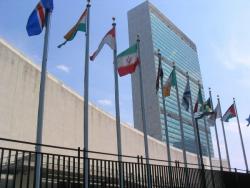The North Dakota House of Representatives has passed the first personhood amendment in the United States, 57-35. Read more
United Nations
Direct abortion not necessary to save women's lives
Here's a video of testimony from an international conference on maternal health, sponsored in part by Personhood USA.
Here are some good quotes from the video. At 40 seconds:
Direct abortion is not medically necessary to save the life of a woman. We affirm that there is a fundamental difference between abortion and necessary medical treatment needed to carry out to save the life of the woman, even if those treatments result in the loss of life of the unborn child. We affirm that the prohibition of abortion does not affect in any way the availability of optimum care for pregnant women.
At 3:40:
[Legalized abortion] is not a component to improve maternal health. That is a matter of scientific fact.
Report from the UN Commission on Population and Development
 The theme of the 46th Session of the Commission on Population and Development was supposed to be migration. Nevertheless, abortion proponents once again hijacked the discussion to push their agenda. Thankfully, the outcome document leaves very little room for abortion advocates to build upon.
The theme of the 46th Session of the Commission on Population and Development was supposed to be migration. Nevertheless, abortion proponents once again hijacked the discussion to push their agenda. Thankfully, the outcome document leaves very little room for abortion advocates to build upon.
During the week, International Planned Parenthood Federation (PP) launched its “Vision 2020” campaign, which includes applauds illegal abortion providers in Latin American countries, even though these medical abortions are hazardous to the woman and fatal to the baby. They call on all governments to “support a woman’s right to abortion by removing legal and policy barriers to abortion services” in the name of reducing maternal mortality. Evidence shows, however, that countries prohibiting abortion can actually provide higher maternal healthcare standards than countries where abortion is legal.
As always happens at the major UN conferences, PP and its allies divert attention from real, pressing issues to push their agenda of so-called "sexual and reproductive health and rights" which include "youth-friendly" abortion services. The outcome document addressing migrants never once mentions food and only twice mentions employment, but mentions “sexual and reproductive health” five times and ensures “emergency contraception and safe abortion.” Guess where their priorities are?
When the African group opposed the PP agenda, Planned Parenthood sent a private letter to the Nigerian ambassador, rebuking her delegation’s stance as the voice for the African group. In the letter, PP issued a veiled threat that if the Nigerian ambassador did not tone done her opposition to abortion, PP would use its influence to cause the ambassador to lose her position as First Chair at UN Women. The PP took to bullying again when the Filipino vice-chairman of the Commission denied numerous requests to include abortion language in the text. On the final day of negotiations, they pushed to have him replaced as moderator of the negotiations.
 Because of the US and EU’s neurotic focus on abortion, the commission could not agree on a negotiated document. The document reverted to a chairman’s text, delivered by the moderator from Moldova. The outcome was not the result of a consultative process of negotiation; it was forced in a take-it-or-leave-it fashion upon the member states.
Because of the US and EU’s neurotic focus on abortion, the commission could not agree on a negotiated document. The document reverted to a chairman’s text, delivered by the moderator from Moldova. The outcome was not the result of a consultative process of negotiation; it was forced in a take-it-or-leave-it fashion upon the member states.
Nevertheless, the chairman’s text did not allow abortion advocates to make any headway. All references to Comprehensive Sexuality Education (which promotes abortion and early sexual activity to children) from the original draft were deleted in the final outcome document. All six references to “sexual orientation and gender identity” were likewise deleted.
Thankfully, a strong paragraph reaffirmed the national sovereignty of each member state “with full respect for the various religious and ethical values and cultural backgrounds of its people, and in conformity with universally recognized international human rights.” Remember, despite decades of agitation from the abortion advocates, there is no internationally recognized right to abortion. Universally recognized international human rights do include the right to life (though sadly, this right is ignored by the UN when it comes to unborn children).
There is very little in this document to build toward a so-called “right to abortion.” Two major country groups (the African group and the Arab group) and nine specific countries voices specific reservations against abortion in their final statements. Honduras issued a strong pro-life statement, reaffirming their position that “The unborn child has the same right as a child that is born.” Chile emphasized its belief that “Life is protected from conception” and that “no part of this resolution can be interpreted an acceptance of abortion in any of its forms.”
After years of trying, abortion advocates left the 46th Commission on Population and Development with little “progress” to celebrate.
UN: To not allow abortion is torture
 Daniel Greenfield, at FrontPageMag.com, reports that UN to Define Pregnancy Without Access to Abortion as “Torture”. This confirms Josh Craddock’s earlier report. Here are the highlights (emphasis added):
Daniel Greenfield, at FrontPageMag.com, reports that UN to Define Pregnancy Without Access to Abortion as “Torture”. This confirms Josh Craddock’s earlier report. Here are the highlights (emphasis added):
The Committee against Torture has repeatedly expressed concerns about restrictions on access to abortion and about absolute abortion bans as violating the prohibition on torture and ill treatment.
Examples of such violations include abusive treatment and humiliation in institutional settings; involuntary sterilization; denial of legally available health services such as abortion and post-abortion care; . . . female genital mutilation
For the UN, killing babies is healthcare. Denial of legal baby-killing is torture.
Day 10 of the UN CSW: Abortion forced into agreed conclusions
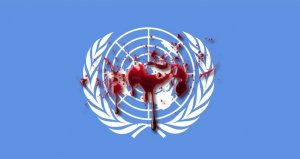 After two weeks of late night negotiations at the Commission on the Status of Women (CSW), abortion and abortifacient “emergency contraception” were adopted (as expected) by the United Nations as means of combating violence against women.
After two weeks of late night negotiations at the Commission on the Status of Women (CSW), abortion and abortifacient “emergency contraception” were adopted (as expected) by the United Nations as means of combating violence against women.
The New York Times published a letter to the editor Thursday morning from the Director of the UN Population Fund (known for their population control agenda), piling onto the previous editorial by continuing to malign and misrepresent life-affirming nations opposing the inclusion of abortion in the negotiated document. In another letter to the editor, the chairwoman of the N.G.O. Committee on the Status of Women continued the false narrative blaming Russia, the Holy See, and others for “assaulting” the human rights of women.
One United Nations Secretariat representative told the commission that “men’s sexual behavior can be a form of violence, since pregnancy is an outcome of it.” Pregnancy is an act of violence according to some full-time UN bureaucrats.
Nevertheless, it appeared late Thursday night that life-affirming nations had successfully kept language promoting abortion out of the negotiated document. Pro-abortion delegations, led by the United States and European Union, initially caved on including access to “sexual and reproductive health care services” (code for abortion) into the document.
The tension was palpable among the abortion lobby. They took to Twitter, admitting that they’d rather see no commitments on ending violence against women than see one that did not include abortion. You see, the abortion lobby doesn’t care about women or women’s health. They care about abortion.
Heeding the call, Ms. Michele Bachelet, the former President of Chile and current head of UN Women, intervened. At the final, high-level negotiations among ambassadors, Bachelet put all of her leverage into ensuring that abortion was included in the “agreed conclusions” outcome document.
The head of the Commission issued a hostile chairman’s text, heavily influenced by UN Women, which referenced “sexual and reproductive health” nine times, four times in association with the abortion euphemism “services,” and twice in association with human rights. “Reproductive rights” was also forced into the short, nineteen page document.
The chairman’s text called upon member states to provide “accessible health-care services that are responsive to trauma and include . . . emergency contraception, [and] safe abortion where such services are permitted by national law.” This is the first time that the CSW has called for emergency contraception in its outcome document.
An El Salvadoran proposal to provide “comprehensive sexuality education” for 8-10 year old girls through language that acknowledges their “evolving capacity” was kept in the chairman’s text. No longer did the text reaffirm the “right to life, liberty, and security of person” that earlier drafts included.
The ambassadors and delegates were given fifteen minutes to review the chairman’s text and either give an approval or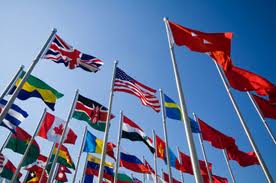 achieve no agreed conclusions for the conference. Given the intense pressure from member states on delegations to the UN to achieve agreed conclusions, the hold-outs caved. Egypt affirmed the document. Then Indonesia, Philippines, Pakistan, India, and Jordan.
achieve no agreed conclusions for the conference. Given the intense pressure from member states on delegations to the UN to achieve agreed conclusions, the hold-outs caved. Egypt affirmed the document. Then Indonesia, Philippines, Pakistan, India, and Jordan.
Several nations expressed their reservations to the document, including the Holy See, which repudiated all mentions of abortion and “sexual and reproductive health care services.” But the agreed conclusions were approved by general consensus and there was no going back. The noble effort to eliminate violence against women was permanently stained by the blood of abortion.
However, they didn’t get everything they wanted. All references to “sexual orientation and gender identity” were successfully removed from the text. The agreed conclusions condemned and encouraged member states to take action against “forced sterilization, forced abortion, and forced use of contraceptives.”
With the acclamation of the agreed conclusions, Ms. Michele Bachelet announced that she is retiring from UN Women and plans to return to Chile. Everyone knows she will run for President once more and understands that leaving abortion in the agreed conclusions was her final legacy at the United Nations.
Thankfully, we know that the battle is not over. The agreed conclusions, while carrying the weight of internationally agreed language, are not binding on member states and cannot be used to legally justify domestic changes on laws related to abortion in any nation.
We enter this contest knowing that the United Nations is stacked against us. It has become a vehicle to push an agenda, so it should come as no surprise that the house often wins. We expected that the agreed conclusions would push abortion, as always. Nevertheless, the courage of nations who have withstood their agenda should be applauded. Those nations aren’t ready to back down yet and neither are we.
The parallel-event co-hosted by Personhood USA educated hundreds of delegates that abortion is never medically necessary and equipped them with scientific data supporting the 100% pro-life position. C-FAM’s event featuring Personhood USA spokesperson Rebecca Kiessling showed that life is the correct answer even in cases of rape. Many delegates who attended these events changed their minds and took that information with them to the negotiations, even when their capitals or ambassadors sold them out to get an outcome document.
The abortion lobby may have won this short-term skirmish, but we know that we will win the war. When it comes to defending human rights, we’re on the side of truth, right, and justice. We’re on the side of life.
Josh Craddock, 21, is Personhood USA’s United Nations liaison. He currently studies Politics, Philosophy, and Economics at The King’s College in New York City.
See also Policy Making to Reduce Maternal Mortality,
Day 1 of the UN Commission on the Status of Women,
Day 3 of the UN CSW: Report on major Personhood-sponsored event,
Day 7 of the UN CSW: US & EU ask to delete “right to life, liberty”
Day 7 of the UN CSW: US & EU ask to delete “right to life, liberty”

The United States of America was founded to protect the unalienable, God-given rights to “life, liberty, and the pursuit of happiness.” Behind closed doors on Monday, however, the delegations from the United States and European Union quietly urged the United Nations to delete a reaffirmation of this foundational principle.
Why? Because it threatens hardline abortion language supported by the US and EU at the United Nations. The Obama administration is concerned that the language could be used by pro-life nations and lobbying groups to strengthen recognition of the right to life from conception in international language.
The document being negotiated currently says: “the Commission reaffirms that every human being has the inherent right to life, liberty and security of person.”
Last year, the Commission on the Status of Women (CSW) failed to reach an “agreed conclusions” outcome document, largely because the US and EU insisted that pro-abortion language supporting “reproductive rights” and “sexual and reproductive health care services” be included. This year, they’re blaming pro-life countries for the breakdown in negotiations in 2012 and they’ve resorted to unconventional warfare to do it.
On Monday, the New York Times audaciously published an editorial calling delegations refusing to budge on the personhood of all human beings an “unholy alliance.” Countries like the US and EU (who want to delete references to the right to life and liberty from negotiated documents!) are portrayed as progressive human rights champions.
Curiously, the nations of the “unholy alliance” are the only countries at the CSW to have condemned forced abortion and forced sterilization of women in places like Uzebekistan and China. The US and EU have remained deafeningly silent.
The US and EU are also advocating the right to “comprehensive sexuality education” for youth. Thankfully, some delegations are taking a stand against this ill-defined, ill-conceived proposal. At a side-event hosted by the delegation of Indonesia and Family Watch International, Dr. Miriam Grossman explained how “comprehensive sexuality education” is used by the International Planned Parenthood Federation (IPPF) to promote sexual activity among adolescents and teach them about their “right to safe abortion.”
Negotiations will conclude Friday.
Josh Craddock, 21, is Personhood USA’s United Nations liaison. He currently studies Politics, Philosophy, and Economics at The King’s College in New York City.
See also Policy Making to Reduce Maternal Mortality, Day 1 of the UN Commission on the Status of Women and Day 3 of the UN CSW: Report on major Personhood-sponsored event
Policy Making to Reduce Maternal Mortality
Joshua Craddock, Personhood USA’s representative at the United Nations, has posted at Personhood Education a pamphlet entitled Policy Making to Reduce Maternal Mortality. The articles contained in the pamphlet are:
- Education, Not Abortion
- Ireland, without abortion, leads the world in maternal health
- The Importance Of Addressing Predictable Causes Of High Risk Pregnancies
In Education, Not Abortion, Dr. Koch explains that “Definitively, the legal status of abortion is unrelated to overall maternal health.” The education level of women has the greatest effect on maternal health.
In Ireland without abortion, Dr. De Faoite explains that life-saving “interventions are permissible in Ireland today under current Irish law, which bans abortion”. Ireland has “one of the lowest rates of maternal mortality in the entire world”.
In Addressing Predictable Causes, Dr. Chireau says that “managing high-risk pregnancy does not involve a conflict between the needs of the mother and the child, but rather comes down to understanding the particular circumstances of that pregnancy and dealing with it in a scientific and rational way.”
Please read the pamphlet.
See also Day 1 of the UN Commission on the Status of Women and Day 3 of the UN CSW: Report on major Personhood-sponsored event
Day 3 of the UN CSW: Report on major Personhood-sponsored event
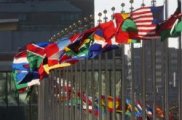 Medical experts specializing in maternal health testified Wednesday (March 6) before the United Nations Commission for the Status of Women (CSW) that abortion is not necessary to save the mother’s life in any circumstance and that abortion is always an act of violence against women.
Medical experts specializing in maternal health testified Wednesday (March 6) before the United Nations Commission for the Status of Women (CSW) that abortion is not necessary to save the mother’s life in any circumstance and that abortion is always an act of violence against women.
The event was co-sponsored by Personhood Education, Vida y Familia de Guadalajara, Alliance Defending Freedom, Construye A.C., Mujer para la Mujer, and the Committee for Excellence in Maternal Healthcare.
A morning briefing drew more than 100 delegates and NGO representatives. The conference room was so crowded so that attendees had to sit on the windowsills, tables, and the floor to listen to the presentations.
Dr. Donna Harrison, an experienced OB/GYN and a researcher at the MELISA Institute, explained how the complications from medical abortion increase fatalities in developing nations. These complications, which may be managed in nations with developed health care systems, become fatalities in regions which lack emergency resources. Abortion advocates promoting chemical abortions around the world do so at the cost of women’s lives, not to mention their babies.
Dr. Monique Chireau of Duke University explained that managing high-risk pregnancy does not involve a conflict between the needs of the mother and the child, but rather it comes down to understanding the particular circumstances of that pregnancy and dealing with it in a scientific and rational way. She emphasized that doctors must first uphold the mantra: “Do no harm.”
Irish physician Dr. Eoghan de Faoite, who also serves as a board member for the Committee on Excellence in Maternal Healthcare reminded the audience that Ireland is consistently considered by the UN and WHO as one of the safest places in the world for pregnant mothers, without recourse to abortion. He also shared the conclusions of a major international symposium of maternal health experts, who recognized that abortion is not medically necessary in any circumstance in a groundbreaking agreement known as the Dublin Declaration.
Leading Chilean researcher Dr. Elard Koch shared his peer-reviewed scientific analysis using 50 years of maternal mortality data from Chile, which discovered that making abortion illegal in Chile did not result in an increase in maternal mortality and actually improved maternal health. In reality, the most important factor in reducing maternal mortality was the educational level of women. He also noted that another of his peer-reviewed studies demonstrated that the Guttmacher Institute systemically inflates their estimates of clandestine abortion in Latin American nations because of flawed methodology.
After the morning briefings, the speakers participated in a major press conference and evening reception with about 60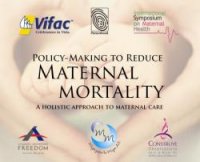 delegates from international missions to the United Nations and NGO representatives. The educational opportunity was not missed by the doctors, who spoke with many delegates negotiating on maternal mortality at the UN Commission on the Status of Women this week.
delegates from international missions to the United Nations and NGO representatives. The educational opportunity was not missed by the doctors, who spoke with many delegates negotiating on maternal mortality at the UN Commission on the Status of Women this week.
It’s wonderful to see representatives of pro-life countries like Ireland and Chile taking the lead internationally by showing that pregnant women and their babies can receive high-quality healthcare without resorting to abortion.
Show your support by joining the pro-life Tweet-a-thon on March 8, International Women’s Day. Send a pro-life tweet to the UN with the hashtags #CSW57 and #EndVAW! https://www.facebook.com/events/344288762355821
Day 1 of the UN Commission on the Status of Women
This morning, I sat in the United Nations assembly hall to hear Ms. Michele Bachelet, the former President of Chile and current head of UN Women, address the opening ceremony of the 57th Session of the Commission on the Status of Women (CSW).
Before hundreds of spectators and delegates, Bachelet outlined her five proposals for action on the priority theme “elimination and prevention of all forms of violence against women and girls.” To the dismay of women worldwide, three of the five proposals included “reproductive rights” and access to “sexual and reproductive health” including abortion.
Bachelet called “reproductive rights” essential to prevent violence against women and audaciously asserted that abortion access would make women less vulnerable to gender-based violence, despite the evidence that abortion emboldens criminals. It allows the rapist to escape being caught, because he can take the victim to a local abortion provider, dispose of the evidence, and continue to victimize the woman. Abortion for rape and incest is not compassionate; it is cruel. If the CSW wants to prevent and eliminate violence against women, it shouldn’t give cover to rapists and criminals.
If anyone knows this truth, it’s Personhood USA spokesperson Rebecca Kiessling. Kiessling appeared at the “Survivors of Prenatal Assault” parallel event hosted by the Catholic Family & Human Rights Institute (C-FAM) and REAL Women of Canada. Kiessling shared her testimony of being conceived through rape and pointed out that abortion just continues to victimize women who have suffered violence. Despite suffering domestic abuse from her adoptive parents and a teenage boyfriend herself, Kiessling told the audience how incredibly thankful she is that her mother chose life.
Liz Carl, who became pregnant from rape at age 17, also spoke at the event, telling delegates that if they really believe in empowering women, they won’t assume women are “too weak” to have a baby conceived in rape. She shared how her son’s life has been a beacon of hope in her healing process. To end the cycle of violence, she said, women need to allow for the opportunity to love.
Want to know how you can help promote life at the U.N.? Click this link to send a tweet asking the U.N. to protect mothers and their babies!

